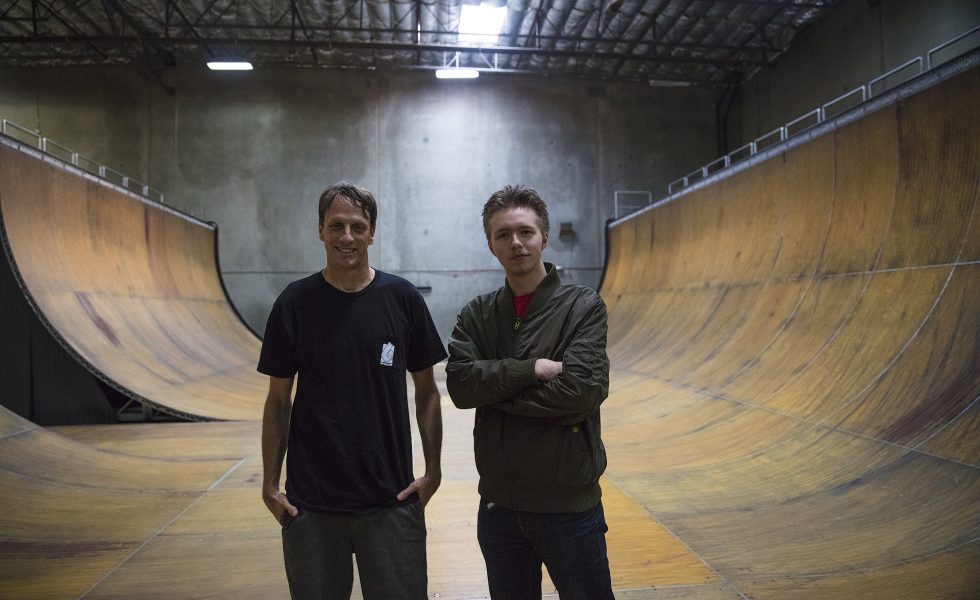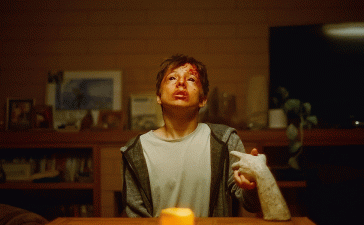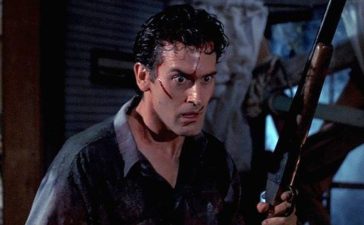When you take stock of the success of the Tony Hawk’s Pro Skater video game franchise, it’s not enough to simply look at sales, eye-watering though they may be. It’s true metric for success lies in its legacy.
Not only is the game being revived for a 2020 re-release, but the sport itself, which the series boosted to the forefront of the zeitgeist, now enjoys Olympic levels of success, making its debut at the Tokyo games this year.
For many of us, it’s a warm, fuzzy feeling to see a franchise from our youth age like a fine wine, but for Swedish-based director wunderkind Ludvig Gur, the game’s strong ambience so many years after its original release means much more.
Together with the video game series’ original producer Ralph D’Amato and a small crowd of pro-skaters including Rodney Mullen and Tony Hawk himself, Ludvig Gur sat in the director’s chair for Pretending I’m A Superman, and we spoke with him about the documentary, which is officially out today.
What was that particular situation that made you feel encouraged to make a documentary about the Tony Hawk’s Pro Skater series?
The Tony Hawk’s Pro Skater games were my introduction to skateboarding and they completely changed my life. I always wanted to make a documentary about how big of an impact these video games have on the art form, but I never really had the resources.
I had a YouTube channel where I would essentially upload gameplay commentary videos of me playing Tony Hawk’s Pro Skater. I did an amateur documentary about Tony Hawk’s first skater game. But just me being a narrator and stuff like that, that Ralph D’Amato saw. He reached out and said I was doing really good. We kind of kept in touch over that, and two years later when I was out in California after I graduated high school, he actually let me meet Tony Hawk, and pitched the film to him.
Obviously I didn’t have much experience at that time, but Tony was kind enough to agree to be a part of the project from the very start anyway.
Sometimes when we go to create content about something that means so much to us, it’s a bit of a struggle because it’s an emotional thing rather than a logical thing. Was it difficult to remove yourself as a fan and put on your documentary maker hat with Pretending I’m A Superman?
I really don’t think so. I think that story of the Tony Hawk’s Pro Skater games and how they influence skateboarding, it’s a story that’s interesting, whether you’re a video gamer or skateboarder. I mean, my parents who have never ridden a skateboard or even played Tony Hawk’s Pro Skater, they find it fascinating. I didn’t really find it that hard to separate my love for the games. Because also if I did, it would probably all be about Tony Hawk’s Underground, which it’s not, thank God for that.
Why do you think that Tony Hawk’s Pro Skater resonated so strongly with not just skateboarders and not just video game players, but just fans of entertainment in general?
I think it was because the video game really showed how cool skateboarding is as an art form, and that it really allows you to explore and look for opportunities. It’s a sport without limitations. It’s not softball or anything like that. And you do it on your own. I think the games totally show that, then introduce people to the culture of skateboarding in a way that I’ve never been shown in the mainstream, not even the X Games.
We saw a lot of the hardcore culture, people got to listen to the music that the skateboarders listened to, they also learned the names of all the tricks because they were at the bottom of the screen all the time. They even got to visit real life locations and try to skate them. Like the hub in San Francisco, which is in the first game.
After Tony Hawk’s Pro Skater 4 and onwards, they did notice a decline in the sales. It seemed as though the franchise got quite top-heavy and began to kind of topple on itself. What’s your read on that era of the Tony Hawk brand?
The first video game was an unexpected success in a lot of ways. Neversoft didn’t have that much money. Because it was such a smash hit, it was just so hard to keep consistent every year. And especially when they were releasing a brand new video game every year, it’s not like FIFA, which you can release every year; new teams have very similar gameplay and people will like it anyway.
The Tony Hawk games needed to introduce a brand new element every single year. That just became so hard. By the time they were in the sixth year, even if they would’ve made the greatest Tony Hawk’s game of all time, I don’t think it still would have been able to meet sales. There were just too many at that time.
From your perspective as a filmmaker and a skateboarder, what is it about the culture of skateboarding, the act of skateboarding, that lends itself so well to film?
I think it’s that skateboarding really is, in a way, it’s sort of a dance, you know? Being a real good skateboarder is like being really good at ballet. It requires such specific moves and skills, yet when you look at it, it looks really easy to pull off. But behind every single trick or whatever, there’s a hundred attempts. And I think that whole excitement just really translates well to skateboarding video.
When Spike Jonze started making skateboard videos and changed the whole approach to skateboarding videos, he really took another part of skateboarding culture. I also, in the same way that dancing is connected to music, I think that skateboarding is connected to music. Because there’s not a single great skateboarding video that doesn’t have a great soundtrack as well.
I’d like to know what you learnt from making Pretending I’m A Superman. What was your favourite lesson that you learned about the game having spent so much time on the doco?
That’s a really good question. I definitely learned a lot. From the skater’s side, I think just how involved Tony Hawk was in the process of making the first game. The role that he had was just amazing and I think learning for example, that he really wanted a loop in the first Tony Hawk’s Pro Skater game, but they couldn’t add that. But then for the second game, they actually added a loop.
I thought that was really fun because that really showed the dedication to the video game. And I think his dedication is one of the biggest assets, why it was such a huge success and one of the greatest video games ever made.









